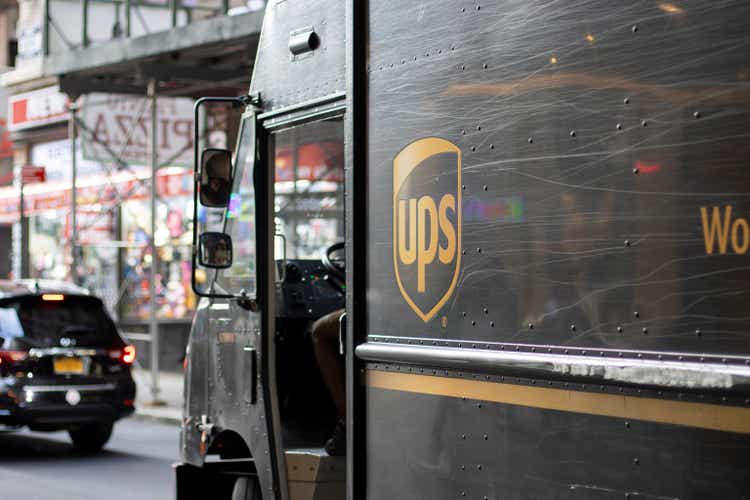It was a role Breanne Irving always knew she wanted to take on. “For me the ‘kids’ thing has never been an ‘I’m not sure’ — it’s always been a definitive ‘heck yes,'” Irving said. But the Calgary woman’s path to motherhood is proving to be more difficult than anticipated.
The 36-year-old palliative care doctor first thought about freezing her eggs when she was 30, but with her career just getting going and other personal life complications, decided it wasn’t the right time. Nearly four years later, she began the process during a period of upheaval in her life, to make sure she’d have the opportunity to have a family when she was ready. “I said no more waiting, no more timeline extensions,” Irving said.

“Something felt really, deeply wrong about that (waiting) and I don’t know if it was my ovaries going ‘mayday!'” Irving’s fertility journey started with the shocking discovery her ovarian reserve was low, and if she wanted to have children, she needed to start freezing her eggs immediately — or even better, freeze embryos. The surprises continued when she learned egg quality and production generally decreases for women over the age of 32. “I remember I had to book a follow-up with my fertility doctor after my first consult because I was so distraught,” reflects Irving.
“I don’t know if I can even describe it in words. A lengthy egg and embryo freezing process — with no guarantees Freezing eggs or embryos isn’t an instant process, according to the Pacific Center for Reproductive Medicine (PCRM) in Edmonton, one of the largest clinics in Canada. In order to freeze their eggs, women must undergo a very similar process to an in vitro fertilization (IVF) cycle.
This involves injections of follicle-stimulating and gonadotropin hormones for approximately 10 days to stimulate the development and maturation of multiple eggs in the ovaries at once. The eggs are then removed from the ovaries via a needle and checked under a microscope for maturity. At this point if the patient was undergoing IVF, the eggs would be inseminated in a lab, and left for five days to see which turn into embryos that would then be transferred into the woman’s uterus.
If multiple viable embryos formed, some patients choose to freeze them for later pregnancy attempts. For those who are looking to freeze their eggs or embryos to use down the road, they are cryopreserved using flash-freezing technology called vitrification. The eggs can be frozen for an indefinite amount of time without damage and according to Canadian guidelines, women can use their frozen eggs to achieve a pregnancy up until age 50.
Irving’s fertility doctor, who is based in Vancouver, was only able to retrieve three eggs during the first collection cycle. After a break, Irving tried again, going back for a second round where the doctor was able to gather 10 more eggs. Of those 13 total eggs, nine were fertilized, but only one became a viable embryo.
Having a viable embryo doesn’t mean a guaranteed a successful, full-term pregnancy so Irving is planning on going back for a third round despite the physical, emotional and financial cost. What does it cost? Spoiler: a lot Fertility treatments don’t come cheap. Not all facilities list their fees, but PCRM does and the price varies based on the procedure, medications required, and complexity of what is involved.
Freezing eggs at PCRM costs about $10,000 just for the procedure, and the medications required are an additional $3,600 – $8,600. Thawing and fertilizing those eggs is another $8,650. One round of IVF at PCRM is about $12,250 plus the above-mentioned cost of meds, which varies depending on what is required.
Storage of eggs or embryos is $750 a year and the transfer of a frozen embryo starts at about $3,500. As the complexity of the procedures required increases (such as for genetic testing) so too does the cost. One round of IVF can end up costing nearly $24,000 in Alberta, and there is no guarantee it will result in a successful pregnancy and baby.
A survey by Fertility Alberta last year showed cost is a major barriers for many people who are struggling to start a family. The advocacy and outreach group surveyed nearly 650 Albertans in September 2023. It found that 74 per cent of people asked did not proceed with fertility treatments because of cost and 90 per cent of those respondents said financial help from the provincial government would have enabled them to try.
Last year, British Columbia announced it would be joining Ontario, Manitoba and Quebec in funding in-vitro fertilization (IVF) treatments starting in April 2025. In Alberta, while consultations with fertility specialists are covered, the actual fertility treatments themselves — the costliest part — are not funded by the province. Residents must either rely on private insurance plans — many of which have lifetime financial limits or only cover certain things like medications but not procedures — or pay out of pocket completely.
Irving has spent between $50,000 and $55,000 on the process so far. Next week, she heads to her fertility doctor in B.C.
for her third round of egg retrieval — adding to her expenses. “The hardest part is the uncertainty piece, you really have no idea each time heading into this what the outcome is going to be,” Irving said. 1 in 6 Canadians face fertility issues April 21-27 marks Canadian Fertility Awareness Week.
About one in six Canadians face fertility issues and advocates says it’s a topic that can still be shadowed by stigma, preventing those wanting to grow their family from knowing all their options. “In school it’s all in sex education,” explains Carolynn Dube with Fertility Matters Canada. “We’re learning how to prevent pregnancy or STDs, and we don’t have conversations about reproductive health and future family planning.
” Fertility Matters Canada is hoping to change how fertility treatment is viewed through the Canadian Fertility Awareness Week campaign, raising awareness, providing education and supporting those facing infertility and related issues. “Sometimes you do feel like it’s only you so the more people can share, the more people can feel like someone else understands how they are feeling,” says Dube. It’s a conversation fertility specialists hope will gain traction as the average age of a first-time mother in Canada continues to climb — now sitting near 32 years old, up from 27 years old in 1977.
Dr. Ariana Daniel is a reproductive endocrinologist and fertility specialist and the medical director at Alberta Reproductive Centre, which opened in 2023. She previously worked at the Pacific Center for Reproductive Medicine (PCRM) in Edmonton.
Daniel’s clients range from couples trying to conceive to members of the LGBTQ+ community and those looking for fertility preservation services for those undergoing cancer treatments. She said infertility impacts 17 per cent of the population and the age of patients is going up — but biology hasn’t adapting to the societal change. “(New parents) are starting to see us later for fertility care,” Dr.
Ariana Daniel said. “At that point, it may mean they don’t have as many options, they don’t have as many eggs, and treatments don’t work as well.” People are able to seek fertility care before they are ready to start having kids, Dr.
Daniel said, as a proactive tool for family planning, especially if they are considering freezing their eggs. She encourages people to look into it sooner, rather than later. “It may not predict your ability in the future, but it can tell you now that it might be more important for you, then say somebody else, to see a fertility specialist, do the testing.
Breanne Irving is still optimistic she will be able to retrieve enough eggs to build the family she’s always wanted. She hopes her story will help others learn what she found out the hard way — it’s never too early to know your options. “It helped me reprioritize some things in my life.
I decided instead of looking at buying a home, I’m going to spend some money on fertility stuff. — With files from Quinn Ohler, Global News.
Health

Alberta woman shares expensive, ‘devastating’ fertility journey in hopes of helping others

Breanne Irving, 36, has always wanted to be a mom and has spent over $50,000 on fertility treatments — a process she wishes she'd started sooner and wants others to be aware of.















